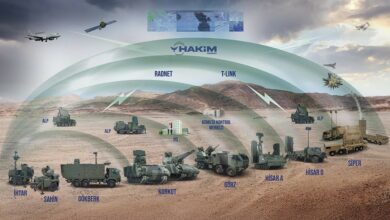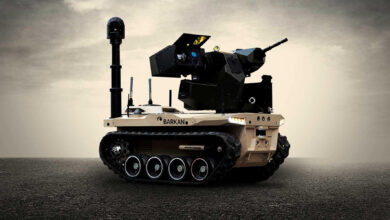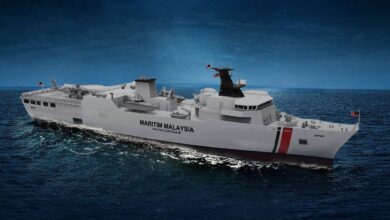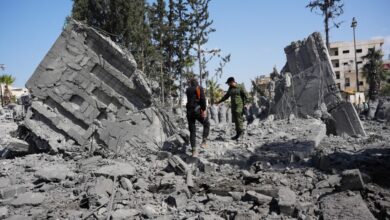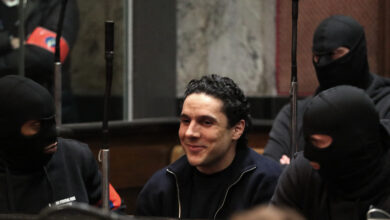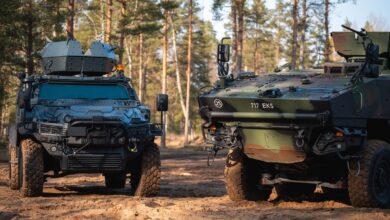Turkey-backed rebels announce unification under ‘Syrian National Army’
Rebels declare readiness to fight Kurdish-led forces backed by US in northeast Syria
Representatives of various Syrian rebel groups supported by Turkey announced their formal unification under the umbrella of the Syrian National Army on Friday, October 4, and vowed to fight against Western-backed Kurdish-led forces.
The National Liberation Front, based in Idlib province, is joining its long-time rival, the National Army, Turkey’s state news agency Anadolu reported.
The National Army mainly operates in the previously majority-Kurdish enclave of Efrin, and is an umbrella of rebel militias tied to a Syrian self-declared government-in-exile in Turkey headed by Salim Idris, a former Free Syrian Army leader.
“Today the National Army and National Liberation front are united under the roof of a single regular army under the ministry of defense affiliated with the Syrian Interim Government,” Abdurrahman Mustafa, head of the opposition government, said during a press conference at a hotel in Sanliurfa on Friday, according to Anadolu.
“We will fight all terrorist organizations, especially PYD/PKK terrorist organization,” Anadolu reported Idris as saying, in reference to the predominantly-Kurdish People’s Protection Units (YPG) which forms the backbone of an alliance of northeast Syrian militias backed by the U.S.-led Coalition against ISIS.
Turkish President Recep Tayyip Erdogan has been ramping up threats to launch a military incursion into northeast Syria to clear the area of the Coalition-backed fighters, in spite of U.S. efforts to negotiate a resolution by facilitating a YPG withdrawal from the Turkish border area and establishing joint U.S.-Turkish patrols.
Turkey has been amassing military personnel near its southeastern border, leading to fears among American officials that Erdogan’s threats to launch an incursion in northeast Syria are serious and that U.S. forces may stand down or even withdraw in case of an attack on the Kurdish-led partner force, the Wall Street Journal reported Thursday.
U.S. Special Operations Forces still remain in Syria’s northeast, where they are advising and training the YPG-led Syrian Democratic Forces to maintain security and conduct raids against ISIS sleeper cells.
Turkey considers the YPG to be a terrorist organization inextricably linked to the Kurdistan Workers’ Party (PKK), which has waged a decades-long insurgency against the Turkish government.
In his speech Thursday, Mustafa accused the YPG of committing “massacres” and “destroying villages and towns,” and said the opposition’s goal was to liberate all of Syria, including territory controlled by Bashir al-Assad’s government.
Turkey has come under pressure from Russia to control the various militias in Syria’s northwest, but it is unclear how Friday’s announcement will change actual relations between rival rebel groups on the ground, according to Aron Lund, a fellow at the Century Foundation.
“Ankara has struggled to make the National Liberation Front anything more than a label,” he said.
Middle East Eye reported Friday that the spokesperson for the National Army and an NLF commander were never told about the meeting.
The move may be intended strengthen Ankara’s hand in the northwest as an encroaching Russia-backed Syrian government offensive threatens to overwhelm the last rebel holdout, something Turkey is hoping to avoid.
Idlib is dominated by al-Qaeda-linked Hayat Tahrir al-Sham, which runs its own government in opposition to the Turkey-backed opposition government.
Friday’s announcement “helps consolidate Turkey’s hold on the non-jihadi segments of the rebellion, and may – theoretically – help the Turks build leverage over jihadi groups later on,” Lund told The Defense Post.
“Firming up command and control and streamlining the rebellion makes sense from Ankara’s point of view in any scenario, so it’s not clear to me this is directly related to the Russian-Turkish-American great game, even if it may come to play some part in it.”
“Dislodging Tahrir al-Sham from Idlib would be really difficult, and I don’t think the Syrian National Army groups – that is, the former National Liberation Front – are up to the task,” Lund said.
“For that to happen, Turkey needs to put its own thumb on the scale, ramping up its investments in how Idlib is governed and perhaps sending in more troops to shore up its clients. And a move of that type would first have to be cleared with Moscow.”
Speaking to reporters this week in Washington, Syrian Kurdish leader Ilham Ahmed would not say whether the U.S. had offered to protect the SDF in case of an attack. Ahmed is president of the Executive Committee of the Syrian Democratic Council, which governs the Autonomous Administration of North and East Syria.
Leaders of the Autonomous Administration say they will resist any incursion into the northeast, and that they fear ethnic cleansing by Turkey-backed groups.
With the help of Syrian rebels, the Turkey launched two previous incursions into northern Syria, Operation Euphrates Shield in 2016, and Operation Olive Branch in which the rebels took control of Efrin in January 2018, leading to mass civilian displacement and U.N. accusations of possible war crimes.



